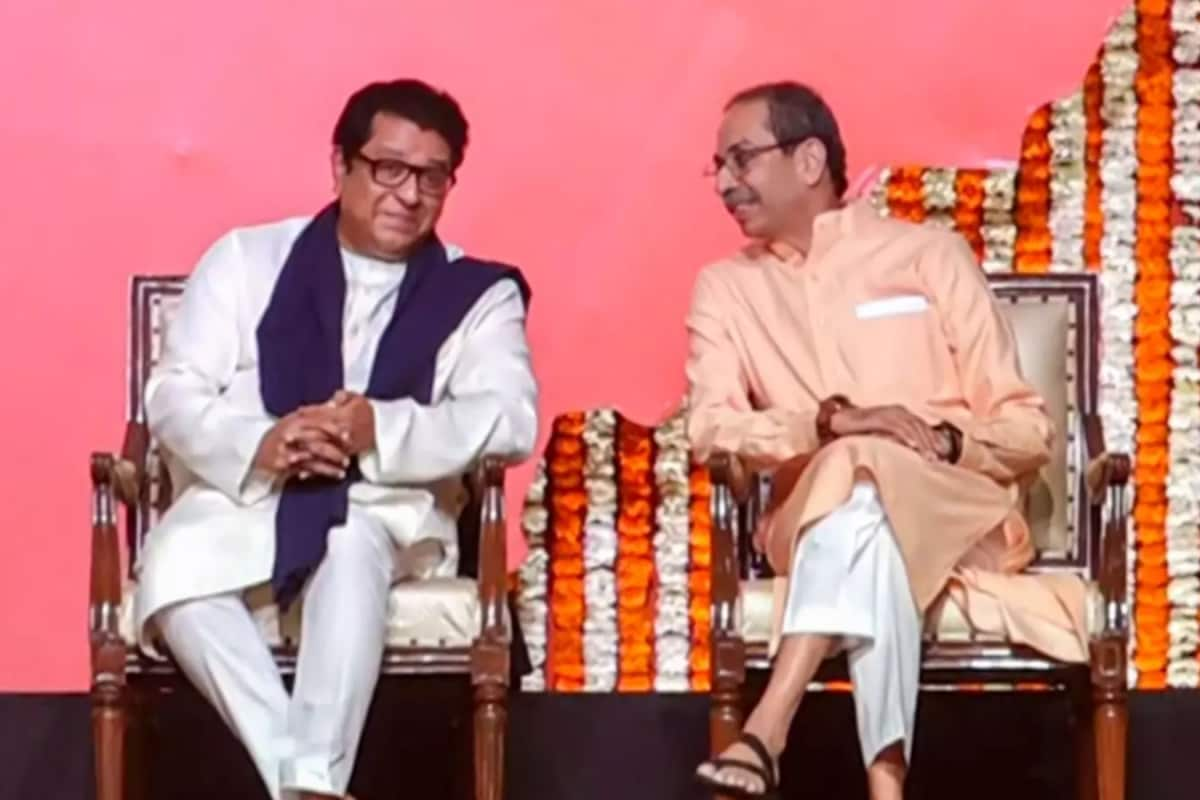

The political landscape of Maharashtra is witnessing a potentially seismic shift as speculation mounts about a possible reunion between estranged cousins Uddhav Thackeray and Raj Thackeray. This development comes at a crucial time, with upcoming Brihanmumbai Municipal Corporation (BMC) elections and a general sense of flux in the state's political alignments. A coming together of the Thackeray cousins and their respective parties, Shiv Sena (Uddhav Balasaheb Thackeray) (Shiv Sena UBT) and Maharashtra Navnirman Sena (MNS), could significantly alter the dynamics of Marathi votes.
The Impetus for a Reunion
Several factors appear to be driving the potential reconciliation. Both Shiv Sena (UBT) and MNS have faced electoral setbacks in recent years. The Shiv Sena (UBT) suffered a major split in 2022, leading to a loss of power in the state. The MNS, since its formation in 2006, has struggled to convert its appeal into substantial electoral gains. A reunion could provide a much-needed boost to both parties, consolidating their support base and increasing their chances of success in future elections.
Moreover, there's a growing sentiment that a united front is necessary to protect the interests of Maharashtra and the Marathi-speaking population. The Thackerays have voiced strong opposition to what they see as attempts to undermine the Marathi language and culture. This shared concern has served as a catalyst for bringing the cousins closer together.
Statements and Signals
Recent statements from both Uddhav and Raj Thackeray have fueled speculation about a possible alliance. Uddhav Thackeray has stated that he is willing to "put aside trivial disputes" and work together in the interest of Maharashtra. Raj Thackeray has echoed these sentiments, suggesting that uniting for the benefit of the Marathi community is feasible. Observers have noted that the leaders avoided using their party names, symbols or flags at a recent rally. Shiv Sena (UBT) leader Sanjay Raut suggested there may have been phone calls between the two cousins. Aaditya Thackeray expressed openness to collaborating with any party that prioritizes the welfare of Maharashtra and its Marathi-speaking population.
Potential Impact on Marathi Votes
The primary focus of a Thackeray reunion is widely perceived to be the consolidation of Marathi votes. Both Shiv Sena (UBT) and MNS draw their support primarily from the Marathi-speaking population in Maharashtra. By joining forces, they hope to prevent a split in this vote bank and maximize their electoral potential. Mumbai and its metropolitan region have a sizable Marathi-speaking population, estimated to be around 40-45%. A united Shiv Sena (UBT) and MNS could pose a significant challenge to other political forces in the region, particularly in the BMC elections.
Challenges and Considerations
Despite the potential benefits, a Thackeray reunion also faces several challenges. The two parties have been separated by ideological differences and a history of bitter rivalry. Reconciling these differences and forging a cohesive alliance will require careful negotiation and compromise. Furthermore, even a united Shiv Sena (UBT) and MNS will need to contend with the changing demographics of Mumbai. The city has a significant population of Hindi speakers and North Indian migrants, who have traditionally supported the BJP. Winning their support, or at least neutralizing their opposition, will be crucial for any alliance seeking to dominate Mumbai's political landscape. Previous attempts at forming an alliance in 2014 and 2017 were unsuccessful.
Implications for Other Parties
A Thackeray reunion would have significant implications for other political parties in Maharashtra. It could potentially weaken the ruling coalition of BJP and Shiv Sena led by Eknath Shinde. It remains uncertain how the MVA would be impacted. Congress has stated it would not have any alliance with the MNS. The BJP seems to be adopting a "wait-and-watch" policy. Some political analysts believe that the consolidation of Marathi votes could benefit the BJP by creating a counter-polarization of non-Marathi voters.
The coming together of Uddhav and Raj Thackeray represents a potentially pivotal moment in Maharashtra politics. Whether this will translate into a long-term political realignment remains to be seen.